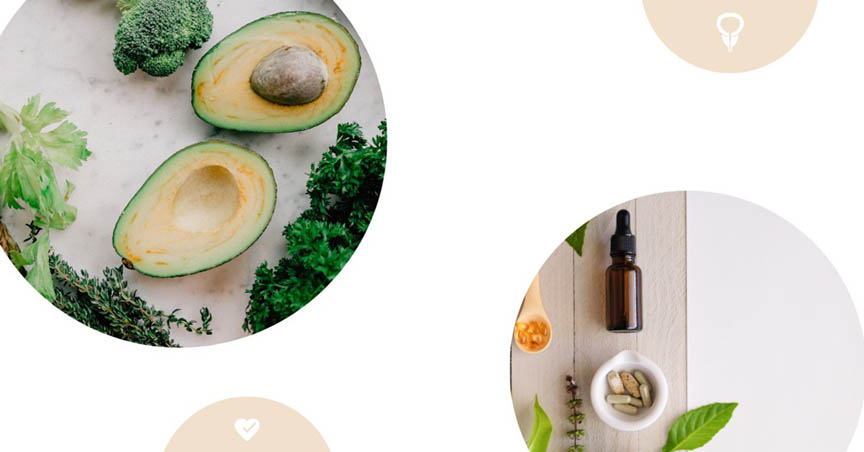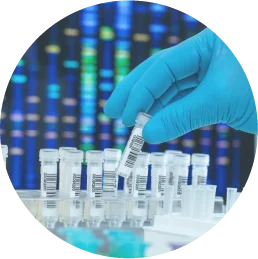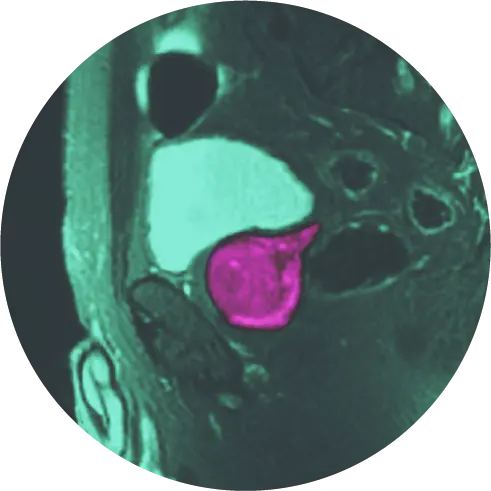Just as ears and noses get bigger as we age, the prostate gland continues to grow over time.1 In fact, enlarged prostate–also known as benign prostatic hyperplasia, or BPH, is so common that medical professionals consider it an inevitable consequence of aging with male hormones.
What is not inevitable are the problems that can occur alongside that prostate growth, namely lower urinary tract symptoms such as having to urinate badly, often, and throughout the night. The good news is that with the right diagnosis and care, these problems can be treated. And for some men concerned about BPH symptoms, natural therapies may be available.
Read on to learn more about BPH and prostate health, traditional herbs for prostate symptoms, and your options for treating BPH naturally.
What is enlarged prostate size?
The prostate gland is an important part of the male reproductive system.2 Located just under the bladder and in front of the rectum, the gland is responsible for producing fluid that supports sperm, and for providing the muscle power required for ejaculation.3 The prostate gland is often compared to a walnut, as a typical prostate is roughly the same size and shape as the proverbial nut.4
As men age, their prostate glands continue to grow. For many, this is an unremarkable process. But for others, a growing prostate spells a growing problem.
BPH symptoms affect up to 50 percent of men between the ages of 51 and 60, and up to 90 percent of men over 80 years old5, although some men may feel the effects of an enlarged prostate as early as their 40s.6
Not everyone with a prostate will experience symptoms of BPH, but those who do will likely observe a negative impact on quality of life.
Enlarged prostate symptoms
Common symptoms of an enlarged prostate include urinary urgency and frequency, in other words, needing to go to pee badly and often.7 Other BPH symptoms include an inability to completely empty the bladder, as well as problems starting or maintaining a strong flow of urine, also known as urinary hesitancy.8
BPH may also cause high prostate-specific antigen or PSA, a test result that can also indicate prostate cancer.9 Since many of the symptoms of BPH are shared with more serious conditions such as prostate cancer, it’s important to see a doctor for an accurate diagnosis. It’s also essential that anyone concerned about rising PSA numbers see a medical professional before trying natural therapies to treat BPH.
Once you’ve confirmed that you’re dealing with BPH, take a deep breath and remember that the “B” stands for benign, as in no, it’s not life-threatening, and yes, it is treatable.
Is prostate enlargement preventable?
Prostate enlargement is an inevitable part of aging, so while you can’t do anything to stop this natural process, there are things you can try to prevent it from becoming troublesome.
What is the best treatment for enlarged prostate?
The best treatment is the one that works for you, and that will depend on the nature of your BPH and your current health status, as well as other factors, like your access to insurance and your household health budget.
Dr. John F. Feller is Chief Medical Officer at HALO Dx, and Assistant Clinical Professor of Radiology at Loma Linda University School of Medicine in California.10, 11 Dr. Feller is also one of the inventors of a patent-pending surgical procedure to treat prostate cancer in outpatient settings using MRI-guided laser focal therapy.
Dr.Feller stresses the importance of seeking medical care, particularly if you’re experiencing pain or discomfort.
“See your doctor rather than suffering the symptoms of this, because, between medication, surgery, and emerging focal therapies, there are many good options to improve quality of life,” he says.12
In addition to pharmaceutical and surgical treatments, there are many natural remedies believed to benefit prostate patients. Although these therapies are generally safe and have quite a bit of historical and anecdotal support, there is limited clinical evidence to suggest they work.
“That’s why randomized controlled trials or double-blinded studies are so important,” notes Dr. Feller, emphasizing that the best studies test natural supplements against placebos. “Unless you actually take a population that doesn’t know if they’re taking a sugar pill or taking the supplement, there’s no way to know if that actually really works, because you’re just taking the sugar pill. And it works 40% of the time because of how strong the psychological overlay is with almost any disease.”
That said, if you’re simply looking to prevent BPH problems down the road, or your symptoms are mild, Dr. Feller agrees that as long as you’ve been assessed by a doctor, there’s likely little harm in trying natural supplements for prostate health first (beyond the impact to your pocketbook, that is).
In fact, some studies have shown that even when patients know their treatment is a placebo, it can still produce tangible benefits.13, 14
With that in mind, here are the most popular natural remedies for an enlarged prostate, or BPH.
Natural dietary remedies for BPH
Go ahead and file these treatments under “things you should probably be doing anyway,” as these antioxidant agents all provide general health benefits, and may also play a role in lowering PSA, and thereby reducing overall prostate cancer risk.15
Lycopene
In a comprehensive review of antioxidants published in the journal Nutrition and Cancer, lycopene came out on top in terms of its benefits for prostate cancer and potential prostate cancer patients.16, 17
Found in pink and red fruits and vegetables such as tomatoes, watermelon, and pink grapefruit and papaya, lycopene has also been shown to inhibit BPH growth, according to a randomized controlled trial conducted at Germany’s University of Hohenheim.18,19 A 2013 review notes that “a growing body of evidence indicates that whole foods may be more effective than individual compounds for lowering disease risk”, suggesting a fresh tomato will provide more lycopene-based benefits than a slice of tomato-sauced pizza–but you probably knew that already.
Green Tea
Small studies such as this one published in Therapeutic Advances in Urology have shown promising results using green tea and black tea extracts to treat the pain of lower urinary tract symptoms.20 Although not strictly shown to reduce BPH, anything that reduces urinary pain, hesitancy and frequency may still benefit those suffering from prostate enlargement.
Drinking antioxidant-rich green tea invites a host of potential dietary benefits beyond prostate health, but if caffeine exacerbates your BPH symptoms, it’s best avoided.
Pumpkin Seed
Pumpkin seeds are a healthy source of fibre, beneficial fats, antioxidants and minerals, and a rich source of zinc, an important but poorly-understood agent for prostate health.21 What’s less certain is whether eating pumpkin seeds will reduce your BPH by any significant measure. Several studies have shown that pumpkin seeds may alleviate urinary frequency and urgency related to BPH, although there’s no evidence they can reduce BPH directly.22
Natural herbs and supplements for enlarged prostate
Historical use and anecdotal data are valid forms of supporting evidence, but doctors typically require a higher burden of proof before they’ll recommend a particular herb or supplement, such as the evidence generated by randomized double blind placebo control studies.23
Still, a 2015 paper in The Canadian Journal of Urology echoes Dr. Feller’s advice, saying that BPH patients with mild symptoms who are reluctant to try standard drugs may as well try phytotherapeutic treatments such as the ones below “provided that the patient understands the current limitations of these agents.”24 The paper warns that patients with moderate to severe symptoms “including those with recurrent infections, bladder stone disease, or renal dysfunction” should skip the alternative remedies altogether and seek conventional medicine or surgical treatment.
Saw Palmetto
Saw palmetto is one of the most popular and widely studied phytotherapeutical, or plant-based prostate enlargement therapies.25 A species of palm shrub native to the US southeast, its berries are used in supplements to support urinary tract function, reduce inflammation, mitigate hair loss and promote prostate health.26, 27
While small studies have generated mixed–but sometimes promising–results for BPH patients, more comprehensive studies and reviews have typically found it no better than placebo at reducing lower urinary tract symptoms.28 At the very least, an 18-month study of 369 patients sponsored by the National Institutes of Health and conducted by the Complementary and Alternative Medicine for Urinary Symptoms trial found the supplement to be safe at regular, double, and triple doses.29, 30
Pygeum
More studies are needed to determine if the bark of the pygeum africanum tree is useful for reducing BPH, although preliminary research indicates promise. Mainly sold as a treatment for enlarged prostate, pygeum is also promoted as a therapy for inflammation, kidney and urinary disorders, and as a libido booster. Pygeum may cause gastrointestinal upset, but is otherwise generally regarded as safe.31
Ryegrass pollen
Also known by the brand name Cernilton, ryegrass pollen has shown modest success at treating symptomatic BPH, although researchers at the Minneapolis VA Center for Chronic Diseases Outcomes Research and other comprehensive reviews have all cautioned that longer studies and comparative trials are necessary to truly determine its efficacy.32,33 Potential side effects include skin sensitivities, respiratory allergies, and gastrointestinal disturbances.34
BPH, prostate health, and lifestyle
As with any condition, minimizing stress, clocking a good night’s sleep, avoiding smoking, maintaining a healthy BMI and exercising regularly will benefit your prostate health.
“Anything that’s good for your heart and good for your brain is also good for your prostate,” says Dr. Feller. “Some people kind of joke around that if it’s good for the big brain, it’s also good for the little brain.”
However you choose to proceed with your prostate care, the good news is that BPH is a manageable condition, and that whether you choose medicine, surgery or natural therapies, a better quality of life is possible.
If you or a loved one are seeking alternative options for treating prostate cancer or BPH, give us a call at 760-469-8057. To schedule a complimentary case assessment and have a HALO Diagnostics team member contact you, contact us below.




